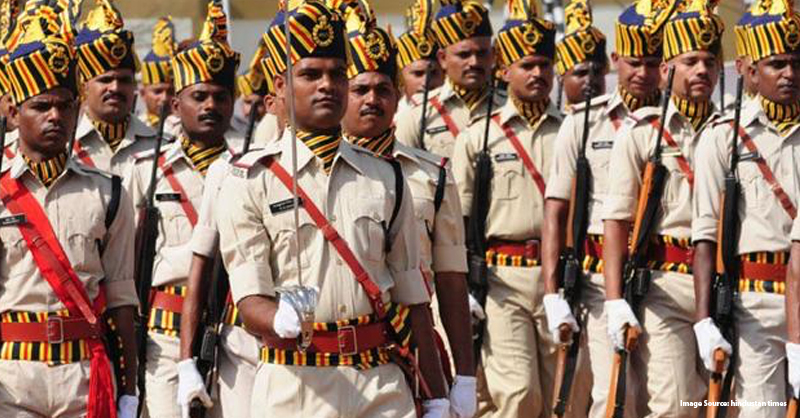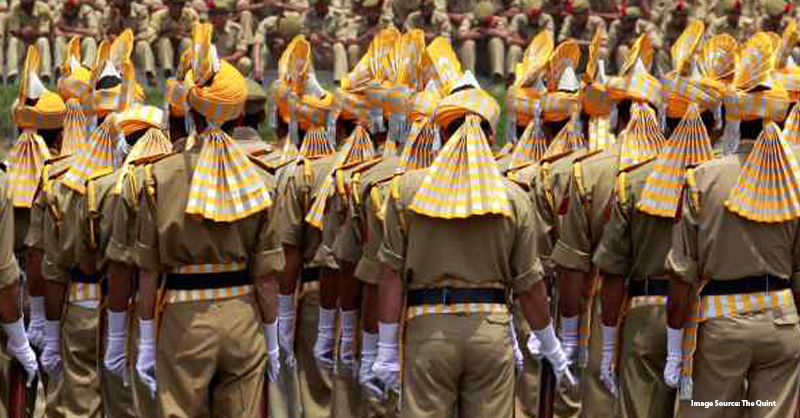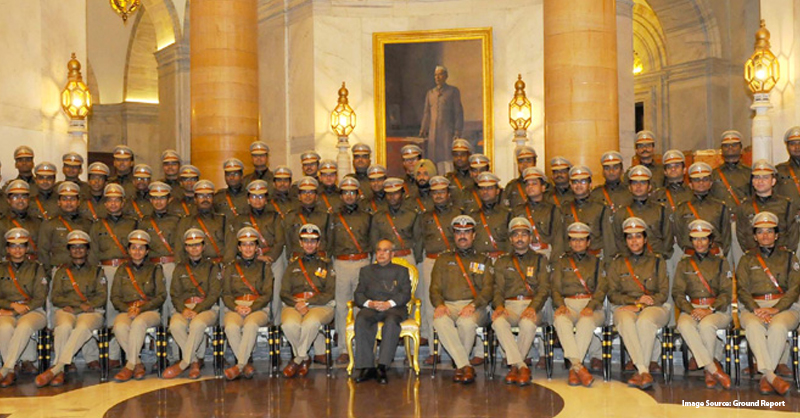The Indian Police Service is an All India Service under Article 312 of the Constitution of India. The IPS officers give senior level headship to Police Forces both in the States and at the Centre. Ministry of Home Affairs is a cadre controlling authority for Indian Police Service (IPS and DANIPS).
 HOW TO GET SELECTED
HOW TO GET SELECTED
The Indian Police Service (IPS) is one of the most celebrated services in the country and only a small amount of people get a chance to enter it. Those who wish to be a part of this service and become a Police officer need to clear the Civil Services Examination (CSE) first. After selection, candidates go through an arduous training at Sardar Vallabhbhai Patel National Police Academy Hyderabad.
The very basic code of training is to train Probationers and to build their capacity to be able to meet the ground challenges.
Selection Procedure: Steps that go into selecting IPS officers-
The Indian Police Service officers are selected by the UPSC (Union Public Service Commission) through a three-stage combined selection procedure called the Civil Services Examination, known for being extremely tough, that recruits officers for other Group A services and Group B services
The Indian Civil Service Examination consists of two successive stages:
1. Civil Services (Preliminary) Examination (Consisting of two objective type papers) GS paper-I & GS paper-II known as CSAT for the selection of candidates for the Indian Civil Service (Main) Examination.
2. Main Exam -a written test and than an Interview.
 GROUNDWORK
GROUNDWORK
- Become familiar with the syllabus:Read over the topics on the syllabus for each part of the preliminary exam, Start with NCERT Textbooks Topic wise
- Be aware of the nature of the exam:Each year 5-10 lakh aspirants register and sit for the exam. Less than 1% of the number of aspirants is chosen for the Civil Services.
- Start your test preparation early:Check the current year’s schedule for the dates of the preliminary exams. Several months of preparation should be done to ensure that you are ready for the variety of questions that may be asked.
- Choose optional subject wisely:You will need to become thoroughly knowledgeable about your optional subject choose you’re optional for which you have passion and familiarity. Begin studying early, and continue to keep up with in order through the end of the mains and interview.
- Read the newspaper daily:Stay informed about current events from the local to the global stage. Focus on the economic and political sections.
- Assess previous years’ question papers:Read over questions from old tests and familiarize yourself with the types of questions being asked. The content and delivery of questions will change from year to year, but the broad-spectrum format remains largely the same.
Syllabus for General Studies Paper I: (200 marks) Duration: 2 hours (Counted for the merit rank in the Prelims) History of India and Indian National Movement, Indian and World Geography Economic and Social Development, , Indian Polity and Governance, Environmental Ecology, Bio-diversity and Climate Change, General Science, and General Knowledge and Current Events.
UPSC Syllabus for Paper II: (200 marks) Duration: Two hours (Not counted for the merit rank in Prelims but a qualifying Paper, you just needs to score 33% of the marks)
- Interpersonal skills including communication skills.
- Logical reasoning and analytical ability.
- Decision-making and problem-solving.
- General mental ability.
- Basic numeracy (numbers and their relations, orders of magnitude, etc.) (Class X level), Data interpretation (charts, graphs, tables, data sufficiency etc. – Class X level)
 Getting Ready for the Mains Exam
Getting Ready for the Mains Exam
The program of Main examination of Union public service commission is intended to test a candidate’s intellectual expertise and ability to present his/her knowledge in a consistent manner.
How to prepare for Mains?
Preparation for mains is preferably done as an integrated process, wherein you prepare for both prelims and mains in tandem. The syllabus for both is similar. If one prepares for mains, they can easily tackle the GS paper of prelims.
Book-list
Subsequently you need to collect your books.
Never skip the NCERTs because you don’t know what important topic or point you might miss. Read NCERTs of class 6th-12th
| S.N. | Book | Author | Subject |
| 1 | History of Modern India | Bipin Chandra | Modern History |
| 2 | Modern India | B.L Grover | Modern History |
| 3 | India’s Ancient Past | R.S. Sharma | Ancient History |
| 4 | History of Medieval India | Satish Chandra | Medieval History |
| 5 | The brief Introduction to Indian Art and Culture | Nitin Singhania | Indian Art and Culture |
| 6 | Indian Geography | Mazid Husain | Indian Geography |
| 7 | Certificate Physical and Human Geography | Goh Cheng Leong or GC Leong | Physical Geography |
| 8 | Indian Polity for Civil Services Examinations | M. Laxmikanth | Indian Polity |
| 9 | Indian Economy | Ramesh Singh | Indian Economy |
| 10 | Economic Survey | Govt. of India Publication Division | Economic Survey assess the progress in the Indian economy over the previous 12 months, summarizes the performance of key development programs, and highlights the policy initiatives of the government of India. |
| 11 | India Year Book | Govt. of India Publication Division | Covers most of the government policies and schemes of the Government of India. |
| 12 | Budget Document of Ministry of Finance | Govt. of India Publication Division | Budget is a document presented to the Parliament every year showing estimated receipts and expenditures of the Government of India for the upcoming year in relation to revised estimates for the previous year as also the actual amounts for the year prior to it. |
| 13 | Three years Action Agenda of NITI Ayog | Govt. of India Publication Division | Document is based on wide-ranging discussions and inputs from the central ministries and State governments. |
| 14 | Science and Technology in India | Tata McGraw-Hill Education | Science and Technology |
| 15 | Environment for Civil Services Prelims and Mains | Khuller & Shankar | Environment |
Interview: In this stage, candidate will be interviewed by a Board. He/she will be asked questions on matters of general interest. The object of the interview is to assess the personal suitability of the candidate for a career in public service.
Follow the following guidelines in interview:
- Good First Impression
- Be a Good Listener
- Communicate Effectively
- Ask for a clarification (If an interviewer has asked a question which you could not hear properly, it is better that you ask gently to the interviewer to repeat his question again)
- Discuss but don’t argue
- Admit Your Mistake
- Be Polite
- Create Good Last Impression
 Role & Responsibility
Role & Responsibility
- Maintaining harmony and Law and Order is one of the most significant responsibilities of an IPS officer as well as they are responsible to take required decisions in their allotted cadre or state or district to maintain Law and Order.
- Security of VIP’s.
- Prevention drug and human trafficking.
- Security of peoples.
- Disaster Management.
- To work along with other members of Civil and All India Services and Army as well.
- IPS Officers carry out their all duties with devotion, bravery and accountability for the people of India.
- High level of professionalism, intellectual, mental as well as physical fitness is vital to show and realize that their duties are held responsible for protecting human rights.

